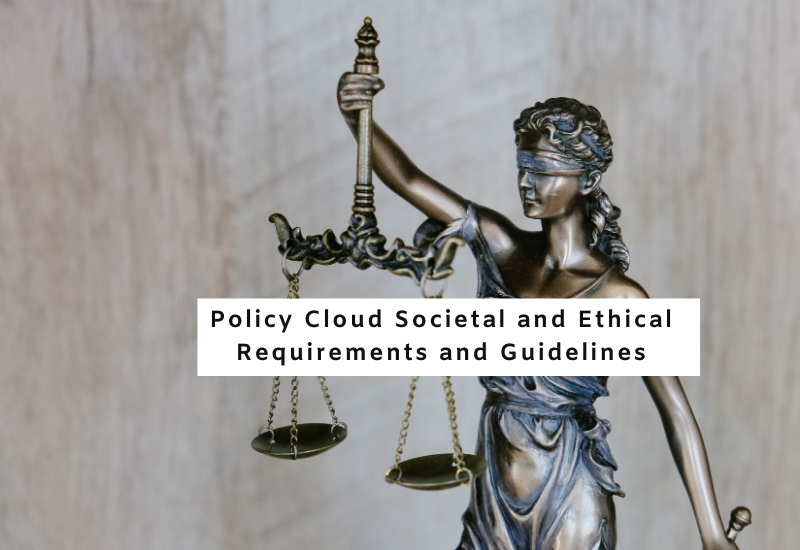
- Cloud for Data-Driven Policy Management
- Contact Us
- Join our community
- Login
Policy Cloud Societal and Ethical Requirements and Guidelines
Policy Cloud has published an analysis of the ethical, legal, regulatory, and societal issues which impinge on the project, and the associated requirements for data gathering and management.
D3.3 Policy Cloud Societal and Ethical Requirements and Guidelines is authored by Audino, Bettiol, Strippoli, and Taborda Barata of Policy Cloud partner organisation ICT Legal Consulting. Two of the authors will be speaking at the webinar The Data Governance Act and Data-Driven Policymaking: Impact and Practical Implementations which is being jointly offered by Policy Cloud and associated EU-funded projects, Cyberwatching, DUET, and URBANITE on 16 February 2021.
Ethical and Societal Issues
The authors single out data accuracy, transparency, and a high level of human engagement in data processing as three of the factors key to project success.
While data accuracy is directly correlated with the reliability of the analytics on which policymaking decisions will be based, trust in those policies will depend on high levels of transparency in dealing with end users. Equally, ensuring an adequate level of human engagement in the data processing and policymaking processes will be necessary to avoid the potential risks associated with a complete automatisation of decisional processes. Such risks include dataset and algorithm biases, which may lead to discrimination phenomena.
Legal and Regulatory Issues
The legal and regulatory issues raised by the authors generally concern contractual protection of data sources, legal protection of databases, copyright, and personal data protection, and privacy. Of these, personal data protection is the most important given the requirement to collect and process a considerable quantity of personally identifiable information. Therefore, compliance with the requirements defined by the GDPR and other applicable personal data protection regulations is paramount for the correct and sustainable implementation of Policy Cloud.
Pilot Use Cases
The report includes an examination of the specific issues related to the four pilot use cases around which the Policy Cloud project articulates. The authors cite the Policies Against Radicalisation use case in particular since the activities could interfere with some of the fundamental rights recognised by the CFREU, the ECHR, and other international legal instruments, not to mention the common constitutional tradition of the EU Member State.
Webinar
Two of the authors of this report will be speaking at the webinar The Data Governance Act and Data-Driven Policymaking: Impact and Practical Implementations which is being jointly offered by Policy Cloud and associated EU-funded projects, Cyberwatching, DUET, and URBANITE on 16 February 2021.
Register for the webinar
Download D3.3 Policy Cloud's Societal and Ethical Requirements and Guidelines
Photo by Tingey Injury Law Firm on Unsplash


